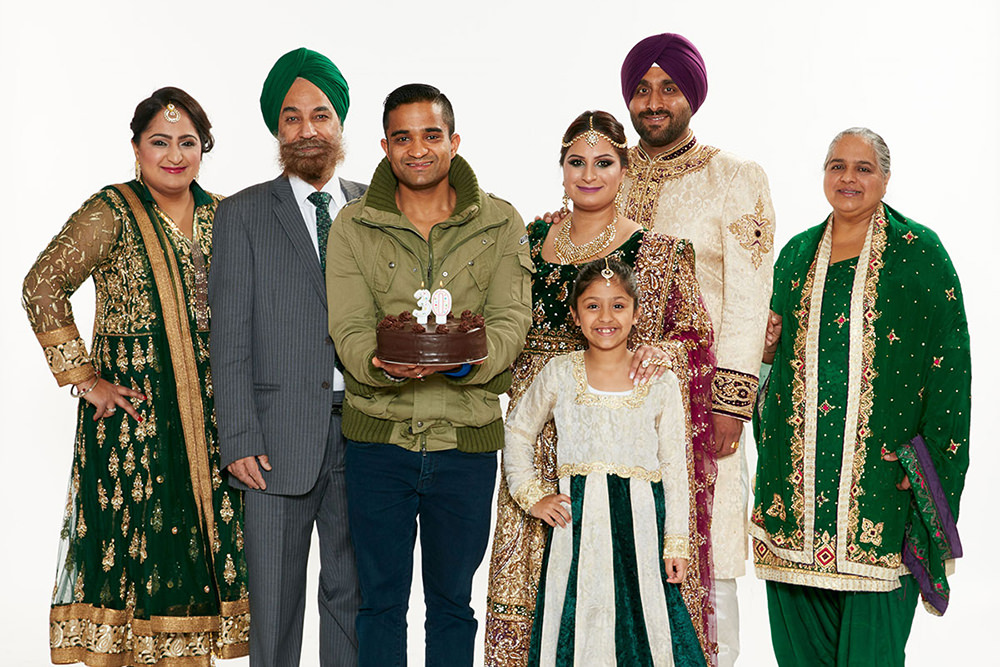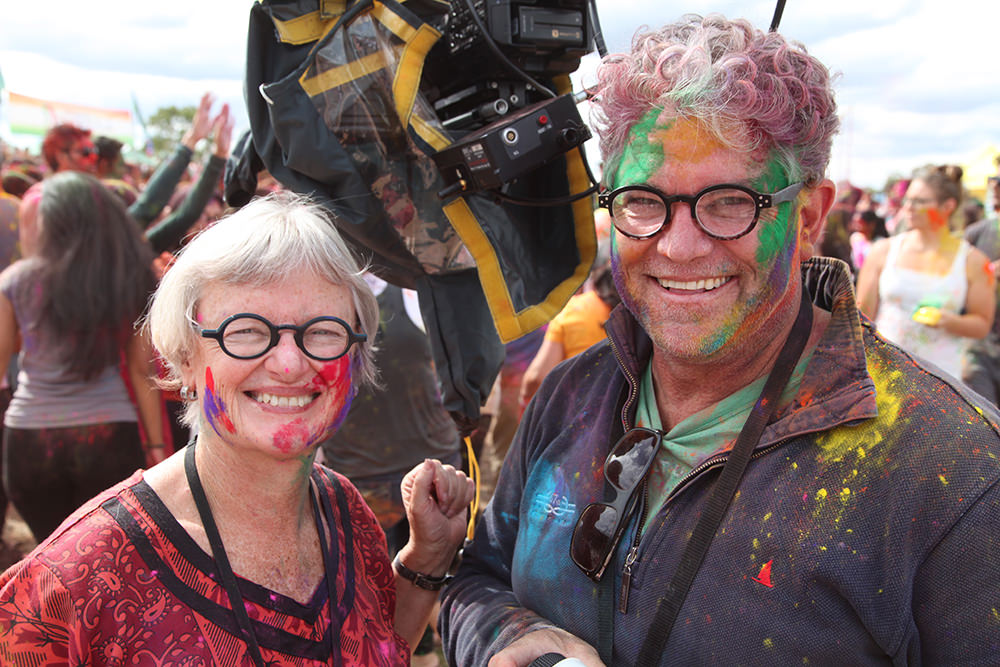Indian Wedding Race: Stakes, heartache and uncertainty
Documentarian Sean Cousins and 360 Degree Films found high-stakes love and drama in the lives of Australian-Indians torn between two worlds.
 Indian Wedding Race
Indian Wedding Race
Producer Sally Ingleton from 360 Degree Films had long been interested in the subject of love and marriage in the Indian community and when SBS announced the Untold Australia initiative at AIDC in 2014, she felt the time was right.
“I was keen to explore how young Indian-Aussies were juggling the cultural wishes of their traditional parents with their own desire for a love marriage” she says.
360 Degree Films engaged director Sean Cousins to develop the idea and put a call out for potential subjects.
“We found 29-year-old Dalvinder quite quickly and she just jumped off the screen,” says Ingleton.
With 295,362 Indian-born people living in Australia*, Cousins thought finding a second subject for the documentary would be easy.
“It seemed like a perfectly plausible and easy idea at the time to make this observational film,” Cousins says.
“It turned out not to be.”
They cast widely and were met with a lot of interest from people in the Indian community keen to be part of Indian Wedding Race – the first of three documentaries in the SBS series Untold Australia.
“But we weren’t able to translate the notion that what we were asking was for privileged access to their family lives,” he says, adding that many initially thought they would be acting in a film.
“We went a fair way down the road with some young people and started filming with them and then once they met somebody who was less enamoured at the idea of having their personal lives filmed they pulled out.”
It took a long time but Cousins eventually found Tarun, also 29, who like Dalvinder was searching for love and determined not to have an arranged marriage.
Over the course of an hour in Indian Wedding Race, audiences are taken into Dalvinder and Tarun’s lives, following them for the better part of a year as they try to find love on their terms before hitting the big 3-0.
“We were very fortunate with Tarun and Dalvinder that they were both very open to sharing the most personal and intimate aspects of their lives with us – and I think the reason for that was they saw a greater good in doing it,” he says.
“I think there’s a feeling amongst young people in the Indian community that they are under a lot of pressure to marry. There’s an innate tension between wanting to live free and independent lives as young Australians and wanting to respect traditions and be respectful of their parents’ values.”
For Dalvinder, finding her soulmate wasn’t as easy as just meeting any Australian bloke. Her father, a Sikh, hoped his beloved daughter would marry a man of the same religion.
And for Tarun, there was a determination to find his future wife without the help of his parents back home in India. This is all before you take into account things like horoscopes, social status and importantly, the parents’ approval of each other.
“It was always going to be an observational story about young people struggling to reconcile this inner conflict and I think in different ways they both capture two of the more common narratives you see in young Indian-Australians,” Cousins says.
“And, both of them end up with outcomes that are surprising from where they started at the beginning of the film.”
 Producer Sally Ingleton and direcor Sean Cousins in the thick of the action on shoot/Rocco Fasano
Producer Sally Ingleton and direcor Sean Cousins in the thick of the action on shoot/Rocco Fasano
That arc – and not knowing whether you will even get one – is always a constant source of stress for Cousins throughout filming.
“That is the thing that makes this sort of observational filmmaking so anxiety-provoking,” he says.
“You don’t know if you’re going to get a proper story arc. There are no certainties.”
He says part of the difficulty was trying to break a year-long journey down into an easy-to-understand, hour-long block.
“And of course, you don’t get the privilege of just making up a new story. You can’t just suddenly invent something – you have got to deal with what you have, so it’s about articulating it in the most dramatic way.”
As always, there are pros and cons.
Although observational documentary-making is time-consuming and stressful, Cousins has also made many strong connections with the people in his films.
“I often see people socially subsequently, because we really miss each other,” he says.
“You spend a year filming with someone and it would be really weird to just walk away and not have any contact with them.
“Often it is the case, and certainly with Dalvinder and Tarun, that I’ve formed quite strong bond with the subjects in the films and you expect those to continue into the future. It’s one of the joys of the work really.”
Indian Wedding Race, the first documentary in three-part series Untold Australia, airs Wednesday 13 April on SBS. It was funded by SBS, Screen Australia and Film Victoria.
*According to the last census

What to read next
Screen Australia launches a comprehensive report into diversity on Australian screens to inform the conversation and calls for real, long-lasting change.
24 Aug 2016
Caris Bizzaca